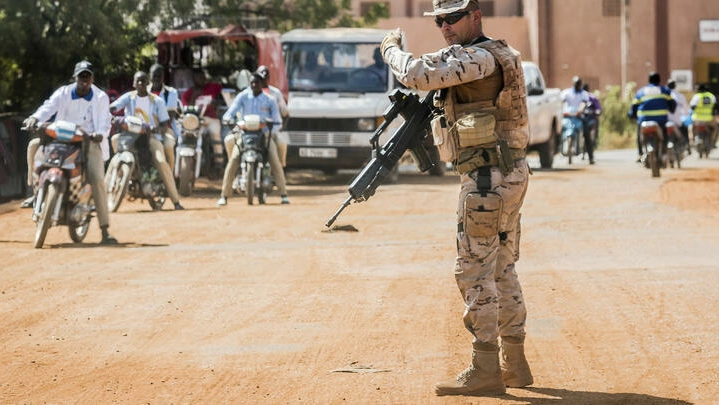The European Union is ending some of it’s military training commitments in Mali due to continued cooperation between Russian mercenaries and Mali’s junta. But the EU says it remains committed to the region.
“We are halting the training missions for the (Malian) armed forces and national guard,” EU foreign policy chief Josep Borrell told a media conference on Monday in Brussel, but added: “The Sahel remains a priority. We’re not giving up on the Sahel, far from it. We want to commit even more to that region.”
Borrell spoke after chairing a meeting of the bloc’s foreign ministers that discussed the issue. He said the development in the African nation “have forced us to see there were not sufficient guarantees… on non-interference by the Wagner group,” a Russian private military organisation that France and other countries say is operating in Mali as an armed force.
The announcement comes after mounting concerns over the role of Russian mercenaries in Mali.
The presence of the Wagner Group private military security company in Mali has been a cause of concern to the EU since they were invited to help fight Islamist militants by the country’s ruling junta.
Ireland has provided troops to the EU’s military training mission in Mali since 2013. They provide training to Malian recruits in bomb disposal, urban combat, anti-ambush tactics and human rights.
The presence of Russian mercenaries alongside – or in command of – Malian soldiers has given rise to concerns among EU governments.
Last Saturday on a visit to Mali, German Defence Minister Christine Lambrecht questioned whether training soldiers was compatible with respect for human rights.
Germany has around 1,100 soldiers deployed as part of the United Nations peacekeeping mission in Mali, known as MINUSMA, and has also contributed some 300 troops to the EU military training mission in Mali.
“We see that Malian soldiers are being trained in a tremendous way by highly motivated and skilled German soldiers, and then they go on missions with these capabilities, for example with Russian forces, even with mercenaries,” the minister said.
“And the question then arises of whether this can be compatible with our values, especially if we then have to witness atrocities like in Moura,” she said.
The Malian junta, which came to power in a coup in August 2020, demanded in a statement on state TV that Denmark to “immediately” withdraw its roughly 150 special forces which recently arrived in the troubled Sahel country.
Sweden in January withdrew its troops from a European special forces mission to the Sahel region and is reviewing its participation in a U.N. force in Mali over the presence of private Russian military contractors.
About 150 Swedish special forces troops were deployed in September 2020 under the EU-sponsored multinational task force Takuba, to support the Malian security forces.



